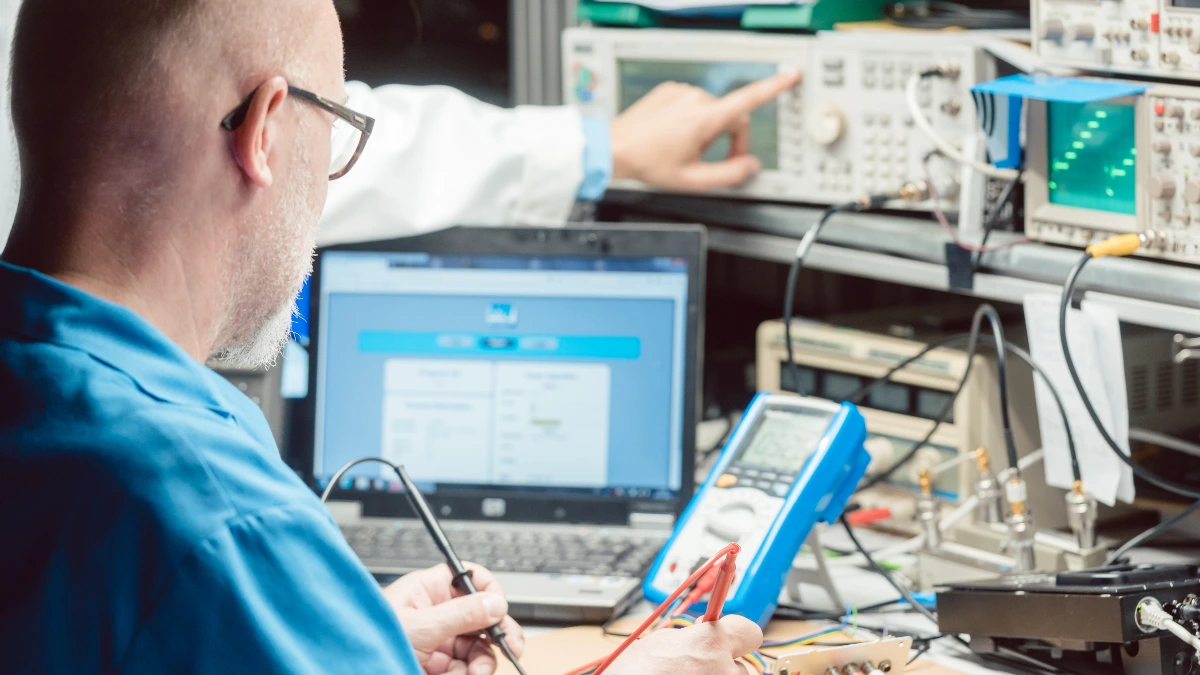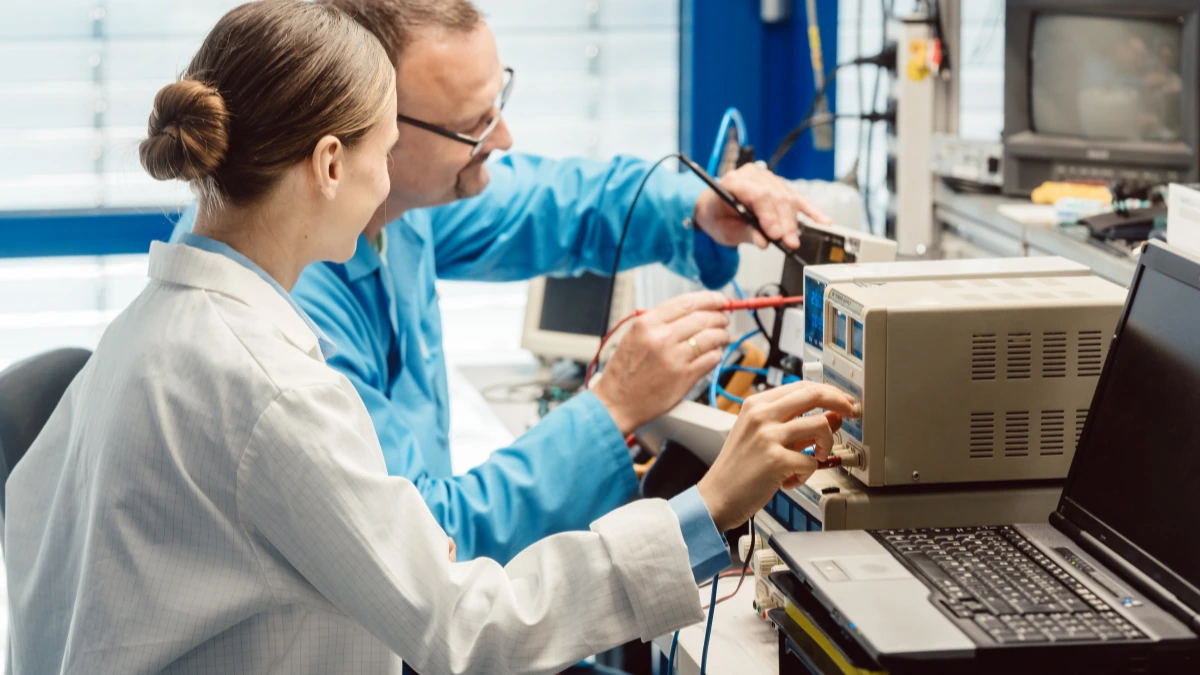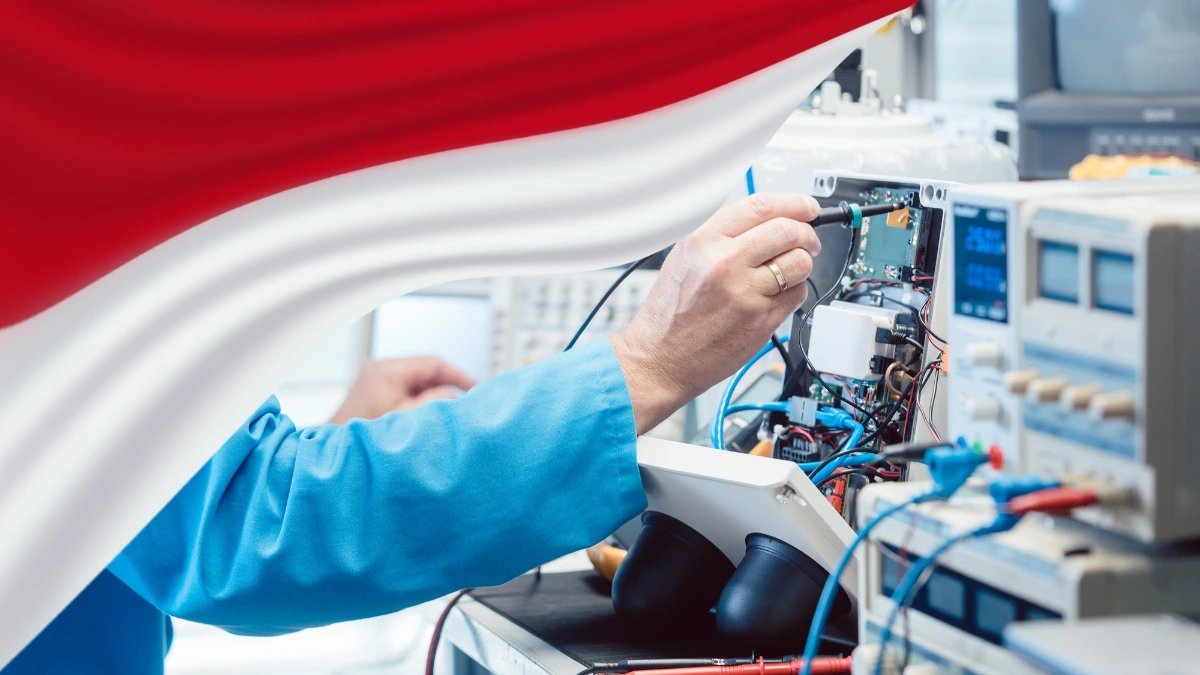Obtaining the Indonesia DJID Certification requires obtaining test reports and application submissions. Obtaining product testing on the Indonesian DJID Certification can be done by doing local testing in Indonesian domestic test labs or using existing reports issued by overseas labs that are recognized by DJID.
Since mid-2018, applicants can now choose to proceed with the application through the document route, product testing on the Indonesian DJID Certification can be done by doing full domestic testing, or partial testing.
What is meant by product testing on the Indonesian DJID Certification being carried out partially is that some test components use overseas laboratory test reports, while other components use domestic testing.
Product Testing on the Indonesian DJID Certification

The sample requirements for Type Approval Certification for ICT Products have undergone major changes since the enactment of the Minister of Communication and Information Technology Regulation.
DJID now requires EMC (Electromagnetic Compatibility) testing for all technologies and electrical safety testing for products using direct AC power.
The Type Approval Certification for ICT Products sample requirements process is divided into two main categories, namely samples for RF (Radio Frequency) testing and samples for EMC and electrical safety testing. These DJID sample requirements must be met for the product to be approved.
Here are sample conditions for RF tests for product testing on the Indonesian DJID Certification:
- Complete Product Required: Submit fully assembled products, not internal components like PCBs or RF modules (e.g., a full printer, not just its parts).
- RF Connector Requirement: Devices using RF tech (WLAN, Bluetooth, RFID, etc.) must include an SMA RF connector and operate in conducted mode for testing.
- Test Software Needed: Provide software to control RF transmission, either pre-installed or run via a laptop. It must support continuous, modulated transmission on specific channels.
- Testing Procedure (SOP): Include clear SOPs (PDF/Word) detailing sample setup and software operation to guide the lab during testing.
- Sample Labeling: Label each sample with product name, model, brand, origin, and serial number.
- Low Power Devices (<10 mW): Only one unit is needed for low-power products, tested in normal or radiation mode.
EMC (Electromagnetic Compatibility) and electrical safety testing are an important part of DJID sample requirements to ensure that products are safe and comply with international standards. For EMC and electrical safety testing, samples must be in normal or commercial conditions. This one sample will be used sequentially for both tests.
Here are the EMC and electrical safety testing standards for product testing on the Indonesian DJID Certification:
- EMC Standard: Follows CISPR 32 and EN 301 489 standards.
- Electrical safety standards: Using IEC 60950-1 or IEC 62368-1 standards, with test parameters such as resistance to overvoltage and leakage current testing.
It should be noted that DJID sample requirements may change at any time according to the latest policies issued by the testing laboratory.
The Laboratory List for Product Testing on the Indonesian DJID Certification

To meet the DJID sample requirements, manufacturers need to prepare products to be tested according to applicable regulations at accredited laboratories. Here are the lists of local and overseas laboratory lists for product testing on the Indonesian DJID Certification that you need to know.
The laboratory in Indonesia
Here are the lists of Indonesian laboratories for product testing on the Indonesian DJID Certification:
| Laboratory Name | Address | Testing Scope |
| Balai Besar Pengujian Perangkat Telekomunikasi (BBPPT), Direktorat Jenderal Sumber Daya dan Perangkat Pos dan Informatika | Jalan Raya Tapos No. 46 Tapos, Depok 16457 | Electrical Safety, EMC, RF, SAR, Non Radio Interface, and Laser Safety |
| Balai Besar Pengujian Perangkat Telekomunikasi (BBPPT), Direktorat Jenderal Sumber Daya dan Perangkat Pos dan Informatika | Jl. Bintara Raya No.17, RW.7, Bintara, Bekasi Barat, Jawa Barat 17134 | Broadcast Radio Transmitter, HF/VHF/UHF Radio Communication, GPRS Terminal, GSM, CDMA, Bluetooth, WLAN, Radio Trunking, Facsimile, Analog Telephone Set, Electronic Data Capture (EDC), Key Telephone System, GSM Repeater, WCDMA Repeater, DVB T-2 Digital Television Broadcast Transmitter, Electronic or Electrical Devices that Generate Emissions/Radiation, EMC, RF, Non Radio Interface, and Electrical Safety |
| Balai Standardisasi dan Pelayanan Jasa Industri (BSPJI) | Jl. Jagir Wonokromo No. 360 Surabaya, Jawa Timur 60244 | EMC, Electrical safety, Electrical Safety, and RF |
| Laboratorium Balai Besar Standardisasi dan Pelayanan Jasa Industri Bahan dan Barang Teknik (B4T) | Jl Sangkuriang No.14 Bandung, Jawa Barat 40135 | EMC, Electrical Safety, Cellular (GSM, WCDMA, LTE), Bluetooth, WLAN, SRD, RF, and Electrical Safety |
| Laboratorium PT. TUV Rheinland Indonesia | Infinia Park Blok A56, B92-93, JL. DR. Sahardjo No. 45 Jakarta 12850 | Electrical Safety (Over Voltage and Leakage Current), and Electrical Safety |
| Laboratorium Penguji PT. Hartono Istana Teknologi, Sub Lab Electronic & RF | JL. KHR. ASNAWI PO. BOX 126, BAKALAN KRAPYAK, KALIWUNGU, KUDUS, JAWA TENGAH 59332 | Cellular (GSM,WCDMA,LTE), Bluetooth, WLAN, DVB-T2 Receiver, LPWA, Electrical safety, and RF |
| Laboratorium Penguji PT. Qualis Indonesia | Jl. Pajajaran No.17 Desa Gandasari Kec. Jati Uwung Tangerang Banten 15137 | Electrical Safety, EMC, SRD, Bluetooth, WLAN 2.4 GHz, WLAN 5.8 GHz, and RF |
| Laboratorium Pengujian PT. Bureau Veritas Consumer Products Services Indonesia | Gedung KKM Lantai 3, Jalan Cideng Timur No. 38, Gambir Jakarta 10130 Indonesia | RF and Electrical Safety |
| Laboratorium Quality Assurance – Divisi Digital Connectivity Service ( Telkom Test House) PT. Telekomunikasi Indonesia | Jl. Gegerkalong Hilir, Sukarasa, Sukasari, Kota Bandung, Jawa Barat 40152 | Microwave Link, SRD, Bluetooth, WLAN, HF/VHF/UHF Device, Maritime Transmitting Radio, WDM,Passive Optical Network, Telecommunication Device ethernet Network,Cellular (GSM, WCDMA, LTE, 5G), LPWA, Laser Safety, EMC, Electrical Safety, Laser Safety, Non Radio Interface, EMC, RF, and Electrical Safety |
| Laboratorium Sentral Operasi Cibitung PT. Sucofindo (Persero) | Jln. Arteri Tol Cibitung No 01 Cibitung Bekasi 17520 | Non Radio Interface,Laser Safety, Electrical Safety, HF/VHF/UHF Device, Cellular (GSM,WCDMA,LTE),DVB-T2 Receiver, Bluetooth, WLAN, and RF |
The overseas laboratory
Product Testing on the Indonesian DJID Certification Reports used (RF, EMC, and electrical safety) must be issued by Overseas testing labs recognized by DJID. The list of recognized testing labs is according to Ministerial Decree No. 13 Tahun 2025.
Read More
>> Ministerial Decree No. 13 Tahun 2025
Conclusion
Product testing on the Indonesian DJID certification is the main requirement in the manufacturing process. Tests can be carried out in domestic labs or foreign labs according to what has been determined by DJID.
Meeting the DJID certification is very important for companies or individuals who wish to bring telecommunications equipment to the Indonesian market. With two main routes, namely local testing and paperwork, DJID offers options for devices that are tested domestically or in recognized overseas laboratories.
Complete document preparation will help the approval process run smoothly, ensuring the device meets the safety and quality standards applicable in Indonesia. If you need help in processing this certification, using Dimulti as Type Approval Certification Services for ITC Products could be the right solution. [UN]

